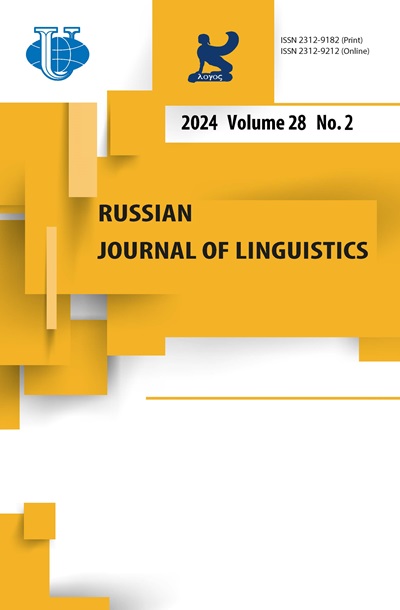Search
Issue
Title
Authors
Vol 22, No 4 (2018): Studies in cultural semantics and pragmatics: for Anna Wierzbicka’s anniversary
1 - 58 of 58 Items
Search tips:
- Search terms are case-insensitive
- Common words are ignored
- By default only articles containing all terms in the query are returned (i.e., AND is implied)
- Combine multiple words with OR to find articles containing either term; e.g., education OR research
- Use parentheses to create more complex queries; e.g., archive ((journal OR conference) NOT theses)
- Search for an exact phrase by putting it in quotes; e.g., "open access publishing"
- Exclude a word by prefixing it with - or NOT; e.g. online -politics or online NOT politics
- Use * in a term as a wildcard to match any sequence of characters; e.g., soci* morality would match documents containing "sociological" or "societal"













